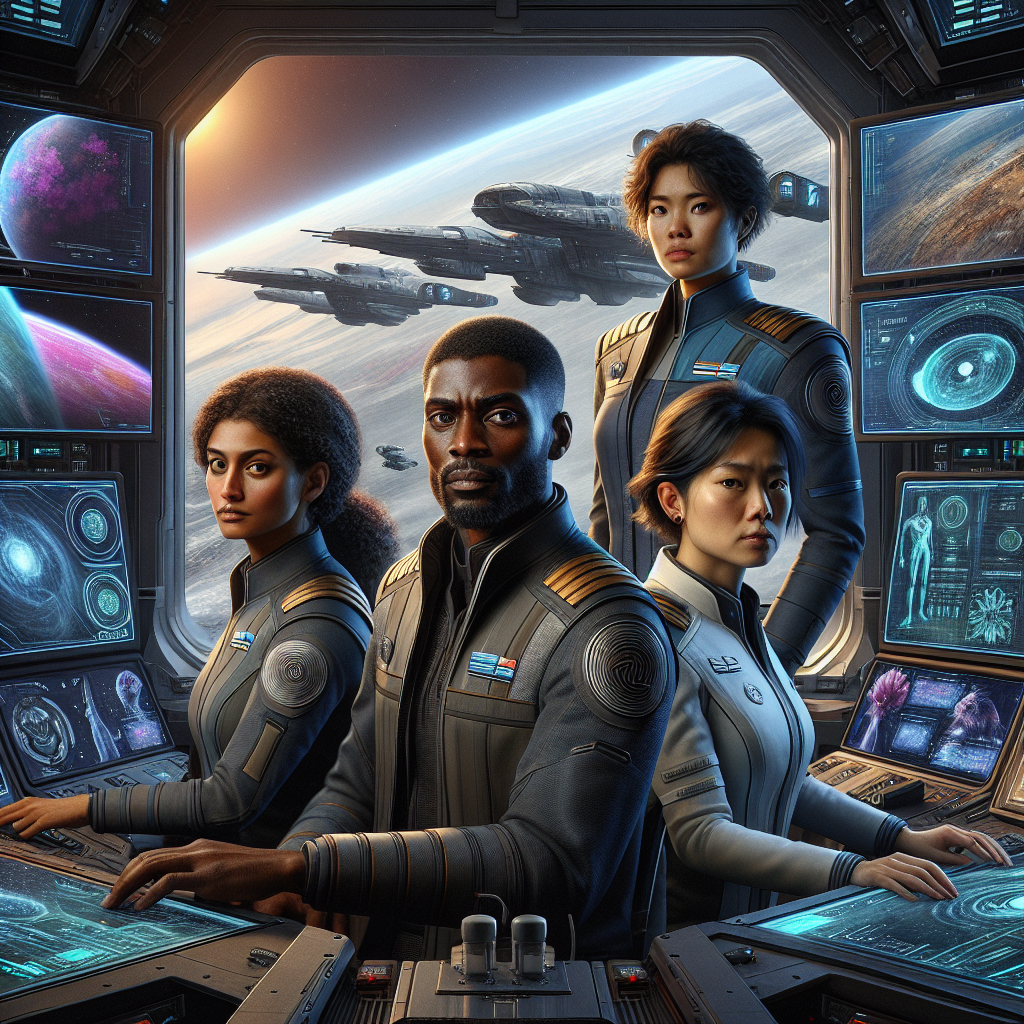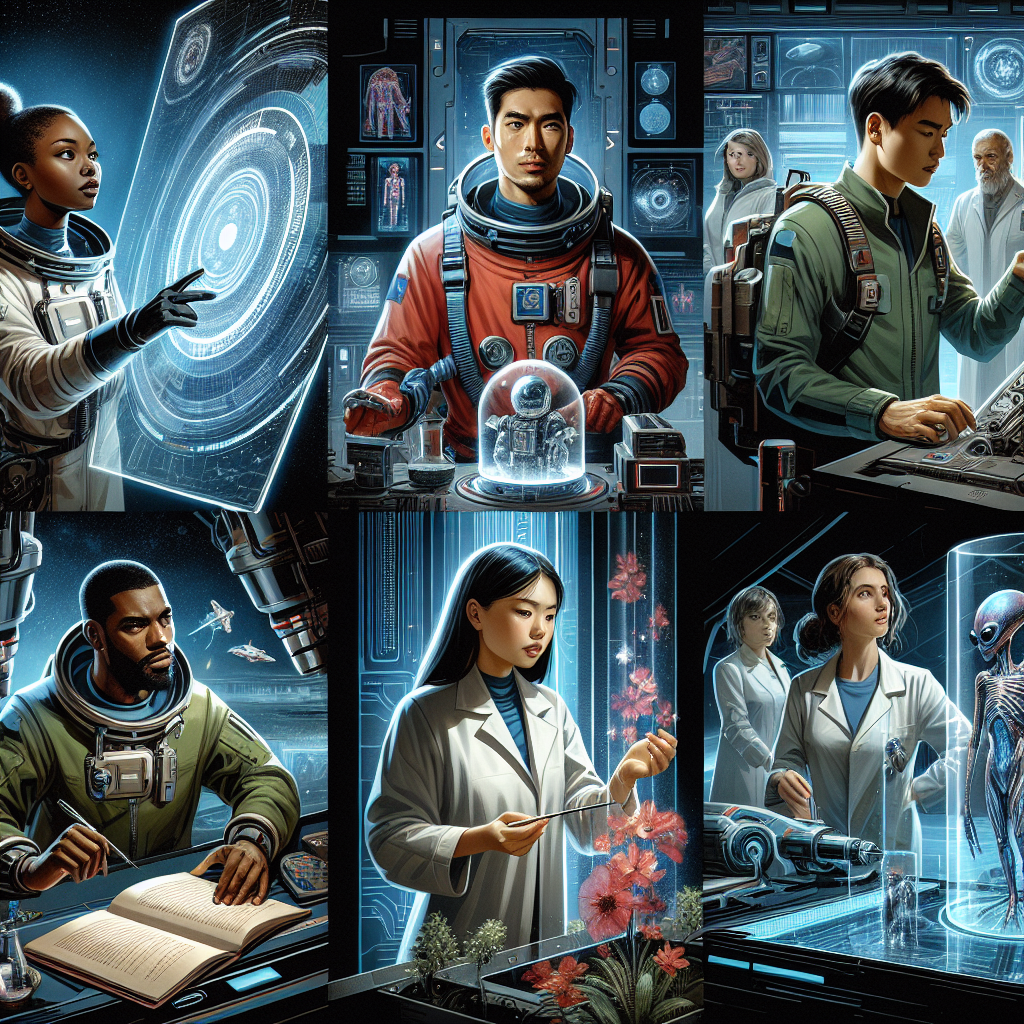As an Amazon Associate I earn from qualifying purchases.
Diverse Representation in Science Fiction: A New Frontier for Inclusivity

Science fiction has long been a genre that pushes the boundaries of our imagination, exploring uncharted territories, futuristic societies, and the complexities of human (and non-human) existence. Yet, for much of its history, the genre has been critiqued for its lack of diversity, often presenting a future that is not reflective of the world's rich tapestry of cultures, identities, and experiences. However, the landscape is changing. The past few decades have seen a significant shift towards more inclusive and diverse representation in science fiction, both in literature and on screen. This article delves into the importance of diversity in science fiction, highlighting key examples and the impact of inclusive storytelling on audiences and society at large.
The Importance of Diversity in Science Fiction
Diverse representation in science fiction is not just about adding color to a monochrome narrative; it's about enriching stories with the multitude of perspectives, experiences, and ideas that make up our world. Diversity in science fiction allows for:
- Broader Appeal: By including characters and cultures from various backgrounds, science fiction becomes more relatable to a wider audience, drawing in readers and viewers who might otherwise feel excluded.
- Increased Innovation: Diverse perspectives lead to more creative and innovative storytelling, challenging authors and creators to think outside their own experiences and explore new ideas.
- Greater Empathy: Exposure to different cultures and experiences through fiction can foster empathy and understanding, breaking down barriers and prejudices.
- Realistic Futurism: A future that reflects the diversity of the human race is more realistic and believable, grounding fantastical elements in a relatable context.
Breaking New Ground: Examples of Diversity in Science Fiction
The shift towards more inclusive science fiction is evident across various media, from groundbreaking novels to blockbuster movies and television series. Here are some notable examples:
- Octavia E. Butler's Literature: Often hailed as the “mother of Afrofuturism,” Butler's work, including the “Parable” series, explores themes of race, gender, and hierarchy, envisioning futures where diversity is at the forefront.
- “Star Trek” Franchise: Since its inception in the 1960s, “Star Trek” has been a pioneer in diverse representation, featuring one of television's first interracial kisses and a wide array of characters from different races, including non-human species, promoting a message of unity and cooperation.
- “The Expanse” Series: This book series and its television adaptation are praised for their diverse cast and the portrayal of a future where humanity has colonized the solar system, yet remains divided by cultural and political lines, mirroring current societal issues.
- “Black Panther” (2018): Marvel's blockbuster hit not only shattered box office records but also became a cultural phenomenon for its celebration of African culture and its predominantly Black cast, offering a powerful vision of Afrofuturism.
Challenges and Controversies
Despite progress, the path towards diverse representation in science fiction is not without its challenges. Issues such as tokenism, stereotyping, and cultural appropriation remain prevalent, with creators often facing backlash for misrepresentation or superficial diversity. Additionally, there is an ongoing debate within the community about the balance between creative freedom and the responsibility to represent diverse perspectives accurately and respectfully.
The Impact of Inclusive Storytelling
The benefits of diverse representation in science fiction extend beyond the pages of a book or the screen. Inclusive storytelling has the power to:
- Inspire the Next Generation: Seeing themselves reflected in positive and empowering roles in science fiction can inspire young people from underrepresented groups to pursue careers in science, technology, engineering, and mathematics (STEM) fields.
- Challenge Stereotypes: By presenting characters with depth and complexity, science fiction can challenge and dismantle stereotypes, promoting a more nuanced understanding of different cultures and identities.
- Shape Future Realities: Science fiction often precedes scientific and technological advancements. By envisioning inclusive futures, the genre can play a role in shaping a more equitable and diverse real world.
Conclusion: The Final Frontier of Inclusivity
The journey towards diverse representation in science fiction is ongoing, reflecting broader societal movements towards equality and inclusion. While challenges remain, the increasing number of voices calling for and contributing to diversity in the genre is a positive sign of change. By continuing to support and celebrate diverse voices in science fiction, we can ensure that the futures we imagine are as rich and varied as the world we live in today. The final frontier of inclusivity is not just about who gets to travel to the stars but about ensuring that the stories we tell about our future reflect the diversity of all who dream about it.
In conclusion, diverse representation in science fiction is not merely a trend but a necessary evolution of the genre. As we look to the stars and beyond, let us also look around us, embracing the multitude of voices and experiences that make our stories truly universal. The future of science fiction is inclusive, and it is a future that we can all be a part of creating.
Amazon and the Amazon logo are trademarks of Amazon.com, Inc, or its affiliates.






















































